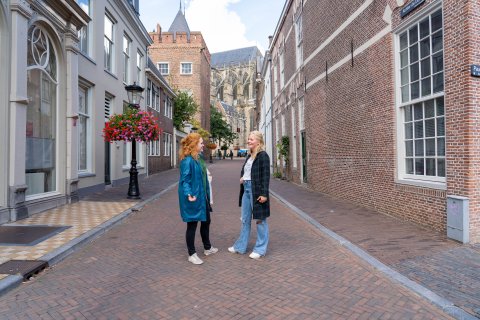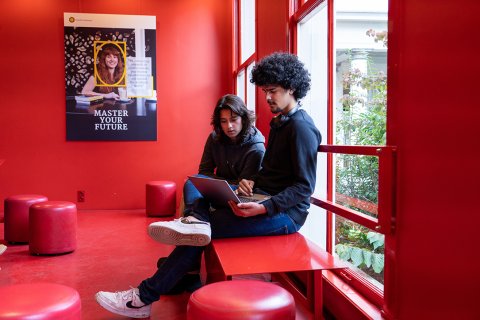After graduation
After obtaining your degree in English Language and Culture, you can choose to enter the job market, but you can also choose to continue your studies. On this page, we have listed a number of possibilities for you.
What can you do with a degree in English Language and Culture?

With your expertise in the field of English Language and Culture, you have a lot to offer an employer. English is the most important business language, but it is also the language of science. In the world, ideas meet in English. Graduates therefore find employment in a wide range of fields. For example: in publishing, in communication or in education.
Continuing education after graduating English

Unlike in professional programmes, at university you are often not trained for a specific profession. By obtaining a university degree, you show that you have an academic working and thinking level. You can go to work, but many students continue with a subsequent master's degree after a bachelor's degree.
At Utrecht University you can opt for a:
- One-year master's programmes: these one-year master's programmes prepare you to pursue a profession at an academic level, for example as a language trainer or translator.
- Two-year master's programmes: these two-year master's programmes will prepare you for a career as a researcher, for example as a PhD student in Linguistics or Comparative Literary Studies at a university. Some alumni also start working for (independent) research centers or in the business sector.
Continuing your studies at UU
Depending on the choices you make and the content of your bachelor's programme, after graduating you can examine whether you can be admitted to one of the following master's programmes at Utrecht University. You will have to take into account specific admission requirements that vary per programme. Sometimes, for example, you will have to take a pre-master's programme first.
I’ve been working at Dutch universities of applied sciences for four years. I previously worked in secondary education and on cultural museum projects. You can definitely do more than teach with a degree in English. My advice to future students is to be open to anything during your Bachelor’s degree. Be a creative thinker!
Professions
After completing your Bachelor's or Master's studies, you will eventually enter the labour market. There you can go in any direction, but most of our students choose one of the following professions or directions:
PhD
When you have completed a master's programme and you are certain that you want to continue as a researcher, you can choose to do a PhD in your field. A PhD track takes four years and concludes with a dissertation with which you will be awarded a doctorate. Doctoral students - also known as PhDs - make an important contribution to Utrecht's research.

